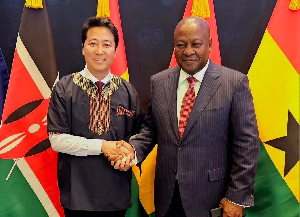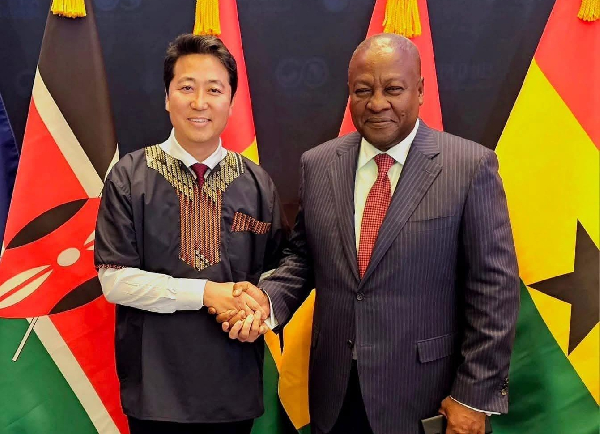 Kojo Choi has been appointed Ghana’s ambassador to South Korea
Kojo Choi has been appointed Ghana’s ambassador to South Korea
The appointment of Kojo Choi as Ghana’s ambassador to South Korea by President Mahama has stirred controversy, and rightly so. While Kojo’s parents, who arrived in Ghana as missionaries, chose to remain and raise him here, his Ghanaian credentials remain superficial at best.
Kojo attended TEMA SOS, an elite school that primarily serves expatriate families and is hardly representative of the average Ghanaian experience. He then obtained a BSc in Administration from the University of Ghana, a school that admits many foreign students. Simply schooling in Ghana does not mean Kojo embodies Ghanaian values or perspectives.
After graduation, Kojo’s activities remain largely unclear, aside from his involvement with PaySwitch, a fintech firm, and other ventures such as a private school co-founded by his wife in East Legon. There is little public record of his contributions to Ghanaian society or civic life.
Supporters argue that Kojo’s appointment showcases Ghana as a diverse and inclusive nation. However, this view neglects significant risks. When Ghana appoints individuals to high-level government roles whose primary allegiance may not be to the country, it endangers national security and undermines the concept of citizenship. Kojo came to Ghana at the age of 14, during his adolescence, with his formative years and identity shaped elsewhere. His marriage to a South Korean and his close ties to the South Korean community further suggest where his primary loyalties might reside.
Political motivations also cannot be ignored. Kojo is closely associated with the NDC and has supported the party, possibly as part of a broader pattern of seeking support from foreign nationals. Recent scandals, such as the Adentan NDC Chairman allegedly soliciting money from expatriates for party activities, raise concerns about the integrity of such appointments. The pattern indicates that party loyalty and financial support, rather than national interest, may be guiding these decisions.
Ultimately, Kojo’s appointment sends the wrong message about Ghana’s sovereignty. South Korea would never appoint a naturalised Ghanaian as its ambassador, regardless of their level of integration. Why should Ghana set a lower standard for itself? When government posts are given to those with unclear national loyalty, it threatens the credibility and security of the nation.
Ghanaians must recognise that celebrating such appointments risks normalising corrupt political practices and undermining our sense of national identity. We should hold our leaders to higher standards by appointing ambassadors who are committed to Ghana’s interests, rather than those whose loyalties may lie elsewhere.


